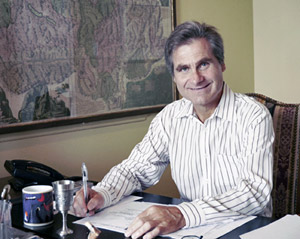Our Unique Approach to Mindfulness

In your body, your relationships and your mind you will learn to first monitor the energy flow with more stability, depth and clarity, then modify it with greater strength and specificity towards integration. That is the path of initiation towards revelation of transcendence.
While timeless knowledge never changes and time-bound knowledge does, our approach to timeless knowledge changes with the evolution of time-bound knowledge. It is unlikely Buddha would teach meditation today the way he taught centuries ago. The way we approach the timeless principles of liberation and awakening has to adapt to the evolution of time-bound knowledge as it yields new insights.
Mindful of these principles we teach meditation in a contemporary and integrative fashion.
- with the attitude of finding universal principles across separate ways of knowing (spiritual traditions, art, science, social sciences).
- with an approach that honors subjective/personal experience as much as science.
- with an eye to incorporate insights from the newest and most advanced knowledge in different scientific and experiential domains of inquiry.
- with an orientation that always encompasses the ONE reality with its two aspects of scientific/objective and subjective experience.
There is no liberation from suffering, no health and no fullness of living without a deep connection to the body. The body and the earth are the foundations upon which everything else arises. To be embodied is to be connected to everything and discover our inescapable embeddedness in the world. The challenge we face is the objectifying minds immense power to alienate us from our bodies, causing us to become brains on sticks with untold grief, pain, disease and suffering.
Our contemporary approach to meditation honors this challenge by beginning with a somatic emphasis that vastly facilitates the meditators access to the deepest realms of being. Our appreciation of the fact that life is movement strongly impacts our approach to meditation.
Through the complex human brain our organism processes reality in a complex multilevel fashion, which includes the sensorimotor level of the body proper (body), the emotional level (soul), the cognitive/narrative level (mind and spirit) and the interpersonal level of relationships. The symphony of human experience that results from the combined interplay of these levels includes sophisticated levels of awareness that take center stage in our meditative work.
Meditation thus is not just an activity we practice an hour a day, nor is it only a non-verbal practice. It is an encompassing awareness attitude we cultivate throughout every moment of our lives, which includes both non-verbal and verbal modes of processing. In this way, our innovative approach to meditation includes both stillness and movement, and extends into the realm of narratives and relationships.
Through the sense organs the brain in our human organism processes reality in complex ways and gives us the gift of conscious experience. We become aware of experiencing a world with things and events, in which we act to survive and thrive. This is the world of both objectively and subjectively experienced phenomena created by the organism which we are. To ensure health and wellbeing it is important to investigate its nature that is one of the two pillars of mindful inquiry.
But that alone has never eradicated suffering and unhappiness completely. Beyond the impermanent world of phenomena there is an unspeakable unknown beyond space and time, called the numinous. Eradication of suffering and boundless fulfilment of life can only occur when we know how to surrender to that unknown and let the numinous inspire our lives. This is the second pillar of mindful inquiry.
Both the phenomenal and the numinous pillars of mindful inquiry are essential for liberation and awakening.
* * *
It is therefore almost never the case that meditation does not work for you. If you encounter trouble meditating, one of two options applies: You are either not interested in or committed to practice, or if you are committed, you are doing something wrong.
If you are not interested in or committed to practice, it is important to realize it, because it saves you a lot of precious energy and time. Dont practice! Let go of negative judgments about not practicing and get on with your life, living it to its fullest as best you can.
If you are committed and encounter difficulties, be rigorous, curious and reach out. Find a teacher who can help you have a close look at what you are doing or not doing, so that you can advance your practice.
Subscribe to our free newsletter with stimulating and life-changing information on mental resilience and all matters of the mind.
BLOG
Impatience, Time and Nothingness
I [...]
This Is Happiness
When [...]







